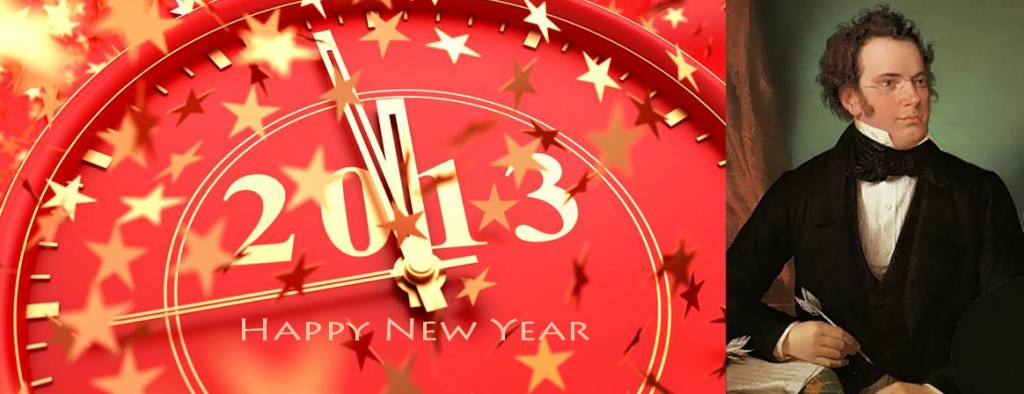 On Monday, September 24, 2012, a high representative of the Catholic Church, Msgr. Dominique Mamberti, Secretary for relations with States, attended the 67th Session of the General Assembly of the United Nations, and submitted a very important document regarding a “particularly urgent task for a just, equitable and effective world governance. ” (1)
On Monday, September 24, 2012, a high representative of the Catholic Church, Msgr. Dominique Mamberti, Secretary for relations with States, attended the 67th Session of the General Assembly of the United Nations, and submitted a very important document regarding a “particularly urgent task for a just, equitable and effective world governance. ” (1)
In general, media draw attention to the contributions of world-renowned political leaders. Thus, Mssrs. Obama, Ahmadinejad, Netanyahu, and Holande (new French president), attracted the attention of television and newspapers. However, it is also essential to analyze major contributions to the discussion of how to lead the world in this time of crisis. Those who have religious convictions and are grounded in God’s Word have sufficient reason to be very attentive.
The text presented by Msgr. Mamberti is well organized, with an outstanding structure, and written with talent and clarity. In addition, it is almost predictable that a religious spokesperson carefully avoids religious vocabulary while speaking to a diplomatic audience. And we can understand his reasoning when he affirms that the international society is witnessing a “juridical disorder”, a total lack of solid foundation. It is very difficult, from the perspective of those who govern society at the beginning of the 21st century, to decide what is right and what is wrong. (2) However, his suggestion to take human rights as the ultimate authority is significant and I will focus on the basic elements of this declaration.
Msgr. Mamberti states: “The Preamble and the first article of the United Nations Charter, together with the Universal Declaration of Human Rights, are the result of a lengthy juridical and political process, which began with the encounter between the theoretical and philosophical reasoning of Greek culture and the juridical and practical reasoning of the Romans, to which were added other elements, such as Judaeo-Christian wisdom, the laws of other European peoples, canon law and its developments, the mediaeval and Renaissance work of Jewish, Arab and Christian philosophers and lastly contribution of the thinking of the Enlightenment and of the political developments due to the revolutions of the 18th century.” (3)
According to the above passage, the United Nations’ Charter and the Universal Declaration of Human Rights are anchored on the foundations of 1. Greek philosophy; and 2. Legislative Roman heritage; furthermore, there is mention of additional elements: 3. Judaeo-Christian wisdom; 4. Juridical contribution of European nations; 5. Church tradition (canon law and its developments); 6. Mediaeval and Renaissance philosophy; and 7. Enlightenment. The conclusion of Msgr. Mamberti is also instructive: “It is only in the light of this complex, rich and intricate edifice, which is simultaneously historical, juridical and philosophical, that the inviolable and inalienable rights of the human person can and must be appreciated as the essence of the law, and to which the rules must refer.”
This declaration calls for some comments:
1. Human rights can only be defined through a reference to God himself. Further, human beings cannot define the rights of other human beings if they fail to recognize the creation of humanity in God’s image. When we eliminate God, we provide human rights and dignity only partially or temporarily, or from the wrong perspective. The absence of God’s vision for our planet produces wars in the name of human rights and the promotion of entitlements that do not contribute to man’s dignity.
2. Man was not created to only enjoy dignity and to claim rights. God the Creator imagined him as a being of love. And through His plan for the happiness of created beings, He made things in such a way that the dignity of man is permanently flowing through his love, through his service, and through his connection with others. Therefore, it is important not only to promote human rights, but to promote that which will develop the dignity of man. It is his service that helps him to live a life of fulfillment. As Ellen White stated, “[True education] is the harmonious development of the physical, the mental, and the spiritual powers. It prepares the student for the joy of service in this world and for the higher joy of wider service in the world to come.” (4) Through his service, man becomes who he really is: a being of love, an incredible blessing for others.
3. Even though we respect Greek philosophy and Roman legislation, even though we praise the Lord for the achievements of so many exceptional individuals throughout human history, we have only one reference: “Thus says the Lord”. We prefer to be grounded in “It Is Written” than to navigate through the labyrinth of human wisdom and confusion. “Let not the wise man boast in his wisdom, let not the mighty man boast in his might, let not the rich man boast in his riches, but let him who boasts boast in this, that he understands and knows me, that I am the LORD”. (5)
I invite you to always do your best for your country. A true Christian is continuously an outstanding citizen. I encourage you to pray for leaders where you live and for those who take care of world governance. Do everything that is possible to contribute to a society of prosperity, respect, and peace. But never forget your ultimate term of reference: “Whether it is right in the sight of God to listen to man more than to God.” (6) This is the only way to respect the rights of all human beings in all their dignity. And do it because you consider them not only as protected by the Declaration of Human Rights, but uplifted by God himself: “Behold what manner of love the Father has bestowed on us, that we should be called children of God!” Do not be guided exclusively by human rights. Promote divine human rights.
(1) High-level Meeting of the 67th session of the General Assembly on the Rule of Law and the National and International Levels, Statement by H.E. Msgr. Dominique Mamberti, Secretary for relations with states and head of the Holy See delegation at the 67th ordinary session of the General Assembly of the United Nations, Monday 24 September 2012.
(2) “Where there is a lack of objective criteria as a basis and guide for legislative activity, the affirmation of the rule of law is reduced to a sterile tautology, to a mere “rule of rules”, Mamberti, par. 5.
(3) Mamberti, par. 8.
(4) Education, p. 13.
(5) Jeremiah 9: 23 – 24.
(6) Acts 4: 19.




